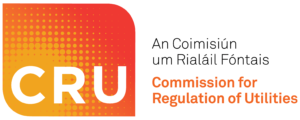Non-domestic tariffs: Providing transparency and equity for business customers

New non-domestic water tariffs will apply to all Irish Water non-domestic customers from 1 October 2021. This implementation date has followed several postponements due to the impact of the Covid-19 pandemic on businesses across Ireland.
Previously, there was a wide range of non-domestic tariff levels, tariff categories, methodologies, applications, billing arrangements and billing cycles across the country. This evolved under the previous water industry structure, overseen by 34 different local authorities and 10 town councils.
This resulted in over 500 separate charges for the provision of water and wastewater services to non-domestic customers of Irish Water across the country. These charges were complex, not transparent, and potentially inequitable.
The new Framework sets out how and how much non-domestic customers will be charged for water and wastewater services and introduces harmonised charging arrangements for the supply of water to a non-domestic premises and for removing wastewater from their premises.
The original decision to introduce this new tariff structure was taken in July 2019, with an implementation date of May 2020.
In March 2020, a decision was made to defer this implementation due to the considerable uncertainty for businesses as a result of the necessary public health restrictions that were put in place to prevent the spread of Covid-19.
A decision was taken in November 2020 to implement the new Non-Domestic Tariff Framework on 1 May 2021. This timeframe was to provide advance notice of the tariff changes to allow Irish Water customers to plan accordingly for 2021.

“The new Framework sets out how and how much non-domestic customers will be charged for water and wastewater services and introduces harmonised charging arrangements for the supply of water to a non-domestic premises and for removing wastewater from their premises.”
However, with the implementation of further required restrictions in January due to the impact of the third wave of the Covid-19 pandemic and many businesses remaining closed, a decision was taken in March this year, in conjunction the Department of Housing, Local Government and Heritage and Irish Water to defer the new tariff framework implementation.
The CRU considered this revised timeline necessary to provide sufficient notice to individual customers of their new tariff as businesses were closed and were unlikely to be in a position to receive relevant communications from Irish Water in advance of the change.
A three-year transition arrangement will be put in place by Irish Water to assist customers who may be faced with a large annual bill increase. Under this arrangement any annual bill increase above €250 will be spread over three years.
In addition to this, any customer facing an annual bill increase of over €750 will have the increase capped at 10 per cent per year for the duration of the three-year transition.
Taking into account the limit on bill increases, the impact of the new tariffs in the first year of billing will be:
- 46.4 per cent (85,059 connections) will see bill decreases;
- 50.4 per cent (92,511 connections) will see bill increases of less than €250;
- 1.6 per cent (2,899 connections) will see bill increases of between €250 and €500;
- 1.5 per cent (2,725 connections) will see bill increases of between €500 and €5,000; and
- 0.2 per cent (285 connections) will see bill increases greater than €5,000.
The CRU considers that the new tariff framework will overall be a positive development for the sector and a more equitable solution for all non-domestic water customers.
For more information:
Commission for Regulation
of Utilities (CRU)
T: +353 1 4000 800
E: info@cru.ie
W: www.cru.ie






